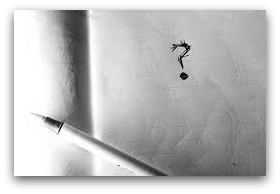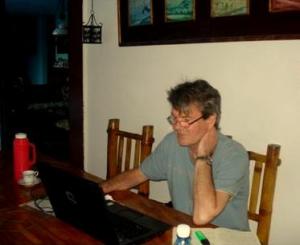Graham Greene wrote that:
=
‘The writer’s duty is to make trouble for any dominant power, forcing complacent authorities and submissive followers to confront difficult questions.’ They should be ‘grit in the state machinery.’ He says that disloyalty is essential against anything that is ‘part of the establishment – churches, universities, businesses, social and cultural groups, even great literary figures such as Shakespeare. If any of these institutions or people are deserving, they can survive the criticism directed at them. Otherwise, no one will suffer unduly except the pretentious, the humourless, the dogmatic, the corrupt.’
–
There is nothing contentious in this statement, it is just common sense. Any power should be able to tolerate and absorb criticism. Criticism is necessary for democracy, or at least a healthy society, to thrive. Yet I see very little criticism of authority today. Of course it is there, perhaps more than ever, but it is mostly hidden, confined to the Internet or minority, specialist outlets. In the mainstream there is little of any relevance.
–
V.S. Pritchett described Greene as ‘genially subversive’ and suggested an appropriate maxim for him and those like him:
–
‘The world is too complacent. Let us catch it out.’
–
Greene was a very good writer and an extraordinarily interesting man. There were many like him: George Orwell, John Steinbeck and, later, Norman Mailer to name just a few. Orwell wrote of Charles Dickens that he was:
–
‘Generously angry…a free intelligence, a type hated with equal hatred by all the smelly little orthodoxies which are now contending for our souls.’
.
Orwell wrote that in 1939 about a man who wrote in the previous century. What would he think of the standard of writing today? Who confronts our ‘smelly little orthodoxies’?
.-
Orwell also wrote about ‘the emotional shallowness of people who live in a world of ideas and have little contact with physical reality.’ That describes almost everyone in authority in the Western world today, particularly where I live in England – public schoolboys and girls are everywhere, completely out-of-touch with reality, living in a strange cocooned world of privilege, but nevertheless possessed of a disturbing certainty that what they are doing is right, that there is no other way. It is much the same with TV, journalism, in fact the media as a whole.
–
Far too many people are only interested in trivia. Twitter, Facebook, computer games and porn are all escapes from reality, time spent on them provides an excuse not to think. Authority conspires in this, often unthinkingly, until we are all engulfed in nonsense. Meanwhile a significant minority goes on its merry way, leading the world to disaster. Here is not the place to discuss what that disaster or disasters may be, I am merely addressing the reporting of it, the writing about it, particularly in books, newspapers and magazines. Many people believe that print is a thing of the past. I don’t agree. Generally, most people do not absorb or remember what they see on their screens; they don’t really learn anything – it is just an escape from thinking.
–
So, who in print is addressing real problems? Where are the influential writers of today? Who is publishing them? Where can I buy their books or read their articles? I hope I’m wrong, but I know of very few, especially novelists. Is there anybody out there who isn’t just playing the game, just lining their own nest?
–
Norman Mailer wrote of the American WASP that:
–
‘They were not here on earth to enjoy or even perhaps to love very much, they were here to serve, and serve they did in public functions and public charities (while recipients of their charity might vomit in rage and laugh in scorn).’
.
Mailer wrote that in the sixties; he was still ‘genially subversive’ in 2006, not long before his death at 85:
.
‘Global capitalism does not speak of a free market but of a controlled globe. It is alien to the creative possibilities that have not yet been tapped in legions of people who’ve never had a chance to be creative, who work and die without creative moments in their lives. Their hopes have been buried. When talented people emerge from no apparent cultural background, I see them as the product of ten generations of frustrated people who wanted more than their lives gave them.’
–
Some fine writers have died recently, Norman Mailer, Gore Vidal and Christopher Hitchens among them. Far from perfect human beings, but thinkers, writers, troublemakers – they always had interesting things to say. I find it hard to think of anybody now who is challenging today’s awful orthodoxies. Is there anyone?
–
Britain produces an extraordinary amount of commentary, in print, on television and on radio: so much that the production of opinion seems to be our dominant industry, the thing we are best at and most enjoy doing. Most of it isn’t bad commentary. If the broadsheets were badly written, if the sermonisers and pundits couldn’t speak in coherent sentences, if you routinely tuned in to hear people not making any sense, it would be much easier to dismiss. That though is not the problem with what passes for discussion in Britain. The problem isn’t that it’s low-grade: It is mostly fluent, clear, coherent and often vividly expressed. The problem is that it is almost entirely free of fresh ideas.
–
You can go whole weeks without encountering a new idea; you can listen to hundreds of hours of media debate and encounter nothing new. The void is at its worst when there is a conspicuous attempt to fill it: the frowning politician pretending to think, as he mimes sincerity; the pouting celebrities spouting forth on the issues of the day, when their only motive is to draw attention to themselves. You witness these performances (and that is what they are – acting) and you think: I wish somebody would say something. Because this is the feeling I get about British life, a bizarre feeling given how much talk there is, but one which goes very deep: you get the feeling that nobody ever says anything. You watch the television, read the newspaper, and wait for somebody to say something…and wait…and wait…and wait…
–
John Lanchester wrote the above in the London Review of Books. He wrote it TEN years ago. We are so, so much worse off now.
–


